
 Image: Pornitor
Image: Pornitor
I spend a lot of time searching Amazon listings. In addition to standard shopping for cheap tchotchkes, I have to find deals to show you, dear reader, pretty much every work day. And also “Prime Day,” which has somehow become multiple weeks every year. I’ve noticed a funny trend: the “brand names” or store names for the third-party Amazon sellers are getting really frickin’ stupid.
There’s a reason for this. Drop shipping, the practice of opening a “store” that’s basically just passing along mass-produced generic items to shoppers through a unified online storefront, is now a massive and inescapable practice. Drop shipping has become a modern replacement for the middleman who used to sell items to local department stores by the millions, including white-box items that would be re-branded a dozen times over with store brands or other labels.


Pexels/tiger Lilly

Pexels/tiger Lilly
Pexels/tiger Lilly
So far, so good, right? You get a near-endless supply of cheap goods mostly manufactured in China, and you get them shipped insanely quickly via Amazon. Amazon gets a ridiculously huge amount of listings, admittedly many of which are repeats of identical products at essentially the same prices. And the drop-shippers get a job, albeit a pretty grueling one staring at a computer all day trying to squeeze a nickel out of a penny with razor-thin profit margins after all those parts of the retail machine get their cut.
But there are hoards of drop shippers competing for your dollar on Amazon and every similar store that has a third-party seller system. And every single one of those stores needs a unique name to sell with, whether or not anyone actually considers them a “brand” unto themselves. For every company like Acer or Lenovo selling directly to customers on Amazon, there are teds of thousands of small businesses or even individual sellers doing the same thing. And every one of them needs a name.
So, we’re now in a situation not unlike the race for unique or relevant URLs in the early 2000s. Except that the “relevant” part of the equation is no longer necessary. So the brand names are essentially meaningless, they just need to exist. Ryan George made light of this in one of his videos:
And since I’ve spent more hours than I can count combing through Amazon listings, I’ve found names that are far more nonsensical than “Floorgoo” or “Barbintron.” Here are the most outstanding — meaning dumbest — that I’ve found in the last year.
VRURC
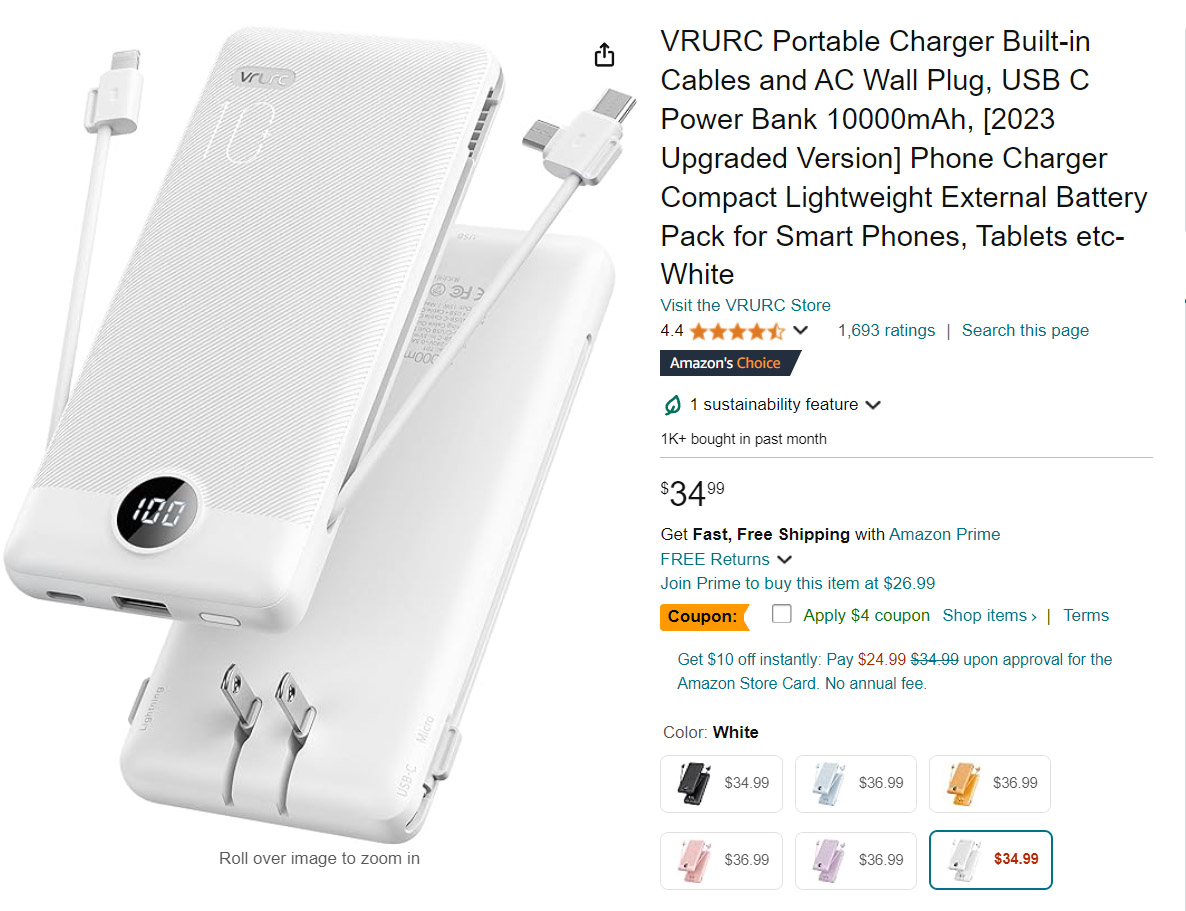

Amazon

Amazon
Amazon
I’ve actually bought from this brand. It’s one of many that drop ships this neat little portable battery, which integrates both charging cables and a wall outlet into its design. It’s fantastic for throwing in your pocket for a long day out, no extra chargers or cables needed. But “Vrurc” sounds like a word I’d blurt out after stubbing my toe in mixed company and trying not to swear.
Taygeer
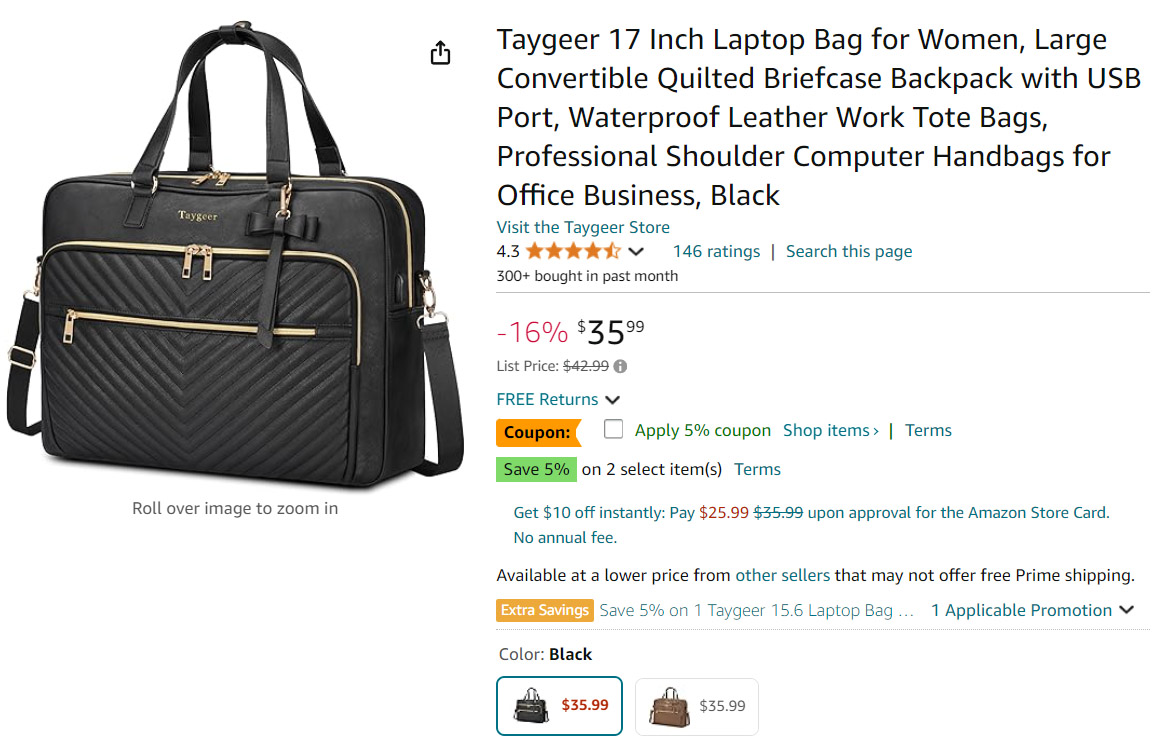

Amazon

Amazon
Amazon
I can’t decide if “Taygeer” is what you get when everyone has already taken every possible brand name variation of “gear” or it’s someone trying to think of what you call an obscure species of monkey that only gets thirty seconds of Attenborough narration in a nature documentary. Anyway, they sell laptop bags.
Gogoonike
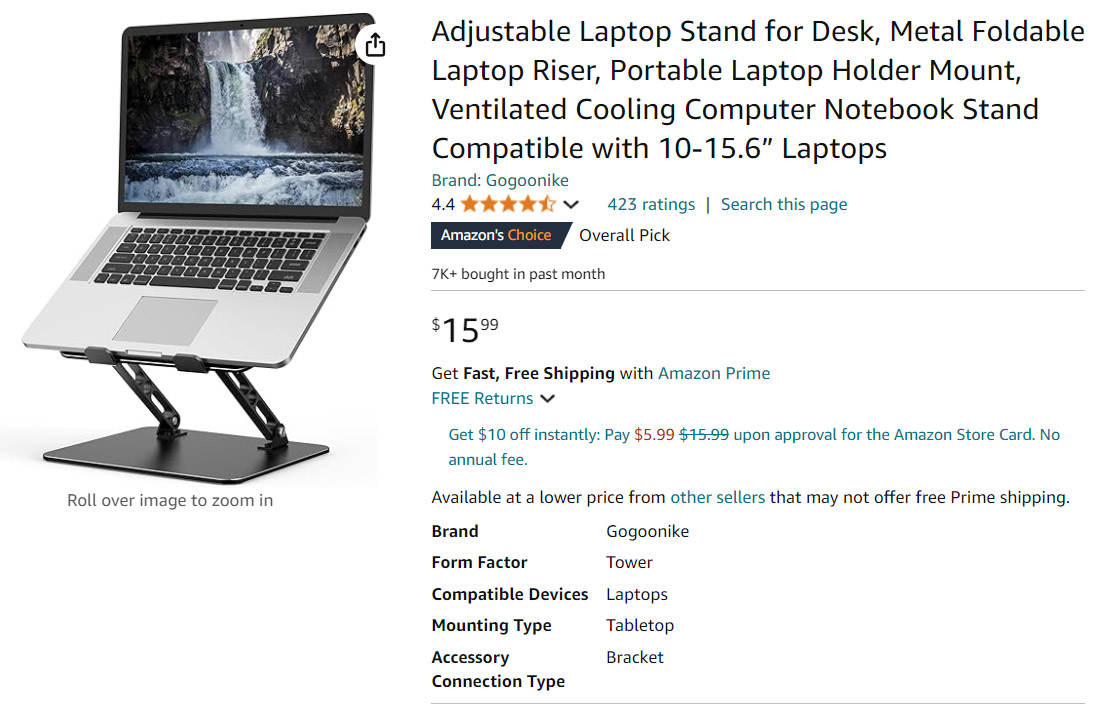

Amazon

Amazon
Amazon
I suspect that someone was trying to cheekily get “Nike” into their brand name on this one, despite the fact that this Amazon store only sells tech accessories. How would you even pronounce it? Go-goo-nik-ee? Go-go-on-ike? For some reason I want to read it as “baboon-like,” so apparently I have simians on the brain.
Jajafook
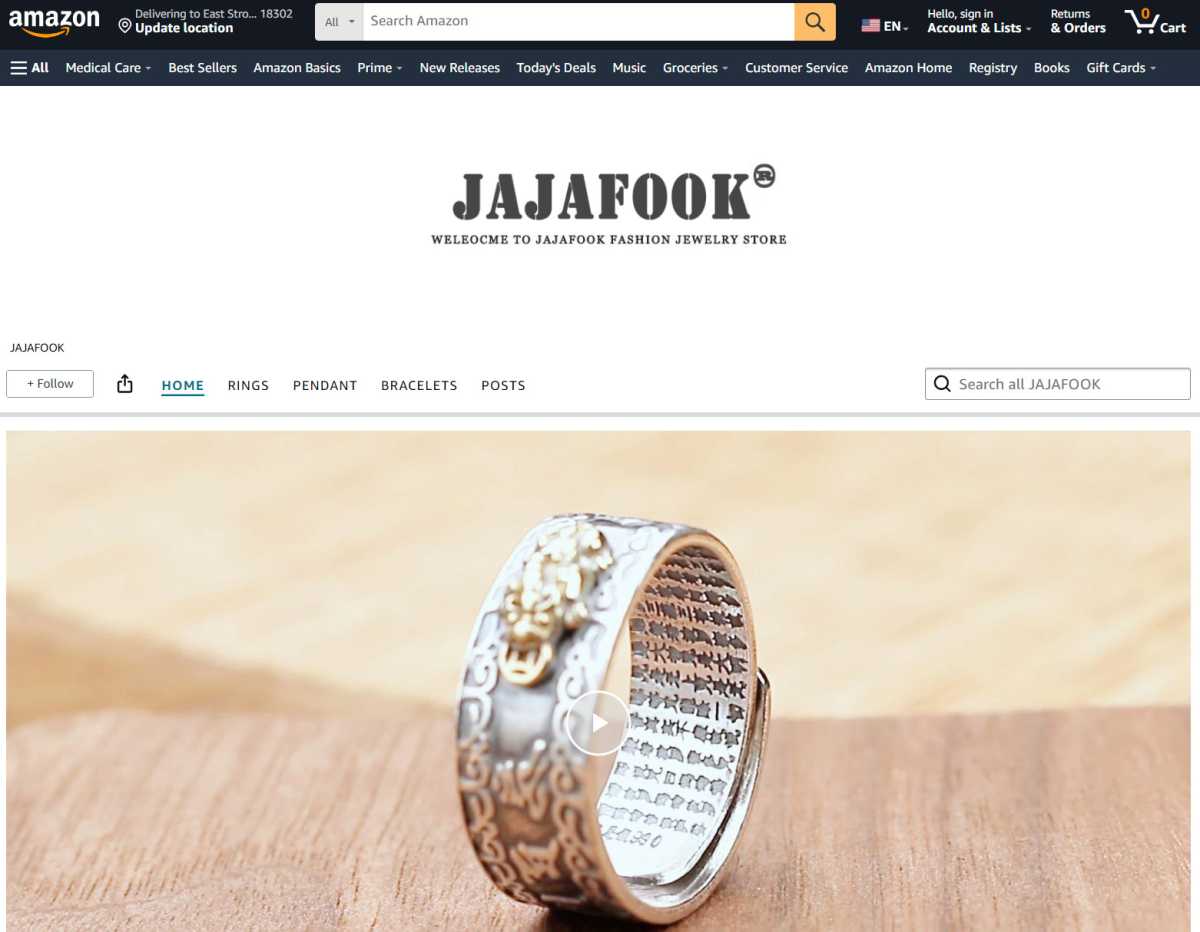

Amazon

Amazon
Amazon
Stylized in all caps, JAJAFOOK is a vendor of extremely cheap and showy men’s jewelry, complete with a faux-military stamp font on the storefront. If said logo is to be believed, the name is in fact a registered trademark, and I was able to find a listing for said trademark going back to 2018. So someone paid an actual attorney to make sure no one dared to steal that name. Wonders never cease.
Ladybro
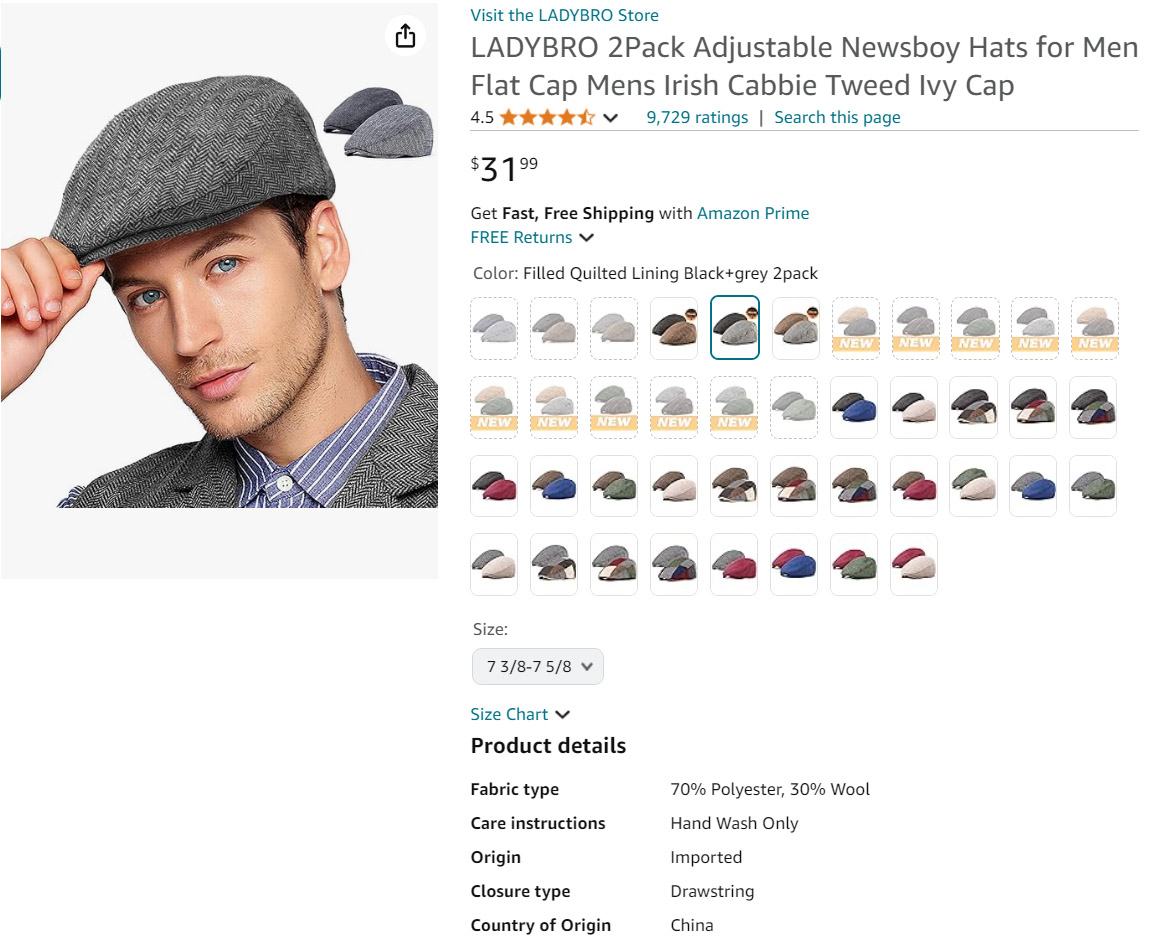

Amazon

Amazon
Amazon
Well, that’s unfortunate. Without wishing to limit anyone’s gender expression, “Ladybro” seems like an off-putting name for any brand that wants to sell clothing to either ladies or bros. Ladybro offers hats and hat-adjacent accessories, as well as one neck gaiter in a bunch of different colors.
Quatish
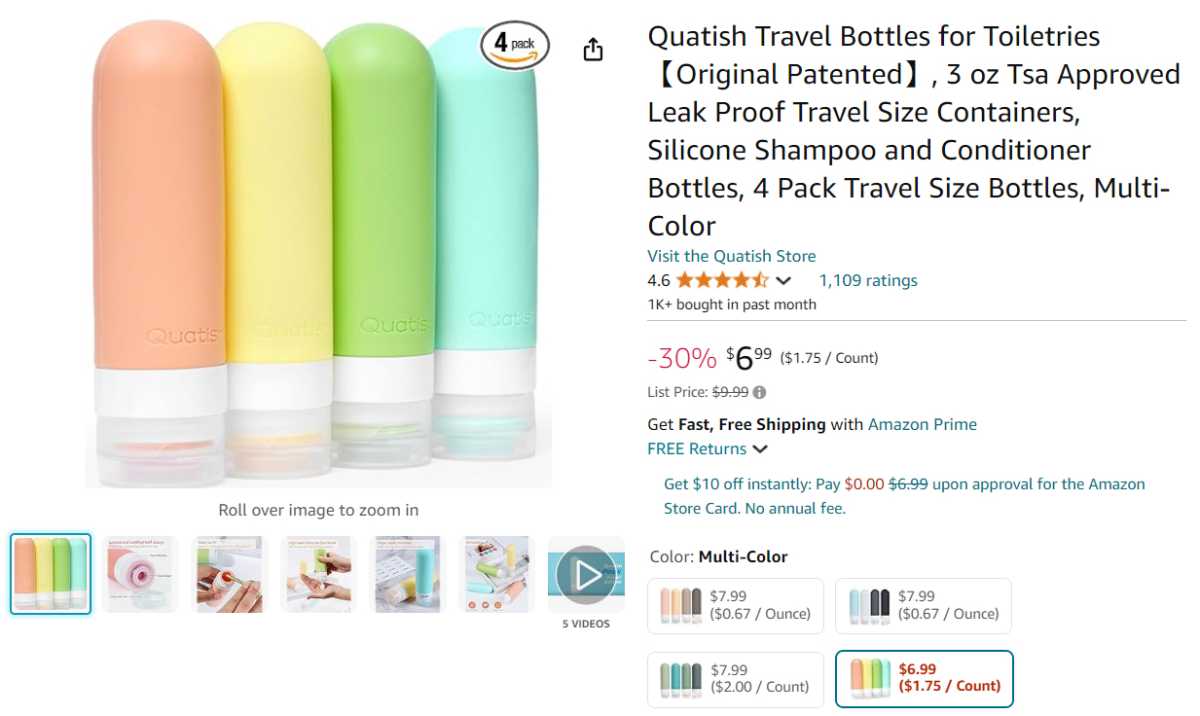

Amazon

Amazon
Amazon
I’m fairly sure “Quatish” is the name of a species of alien I read in a 1970s sci-fi paperback. Their society was a thinly-veiled social commentary on the evils of unions, or something like that. Or maybe it’s the sound your shampoo makes when you squeeze it out of one of the TSA-approved squishy bottles this brand sells.
Mosptnspg
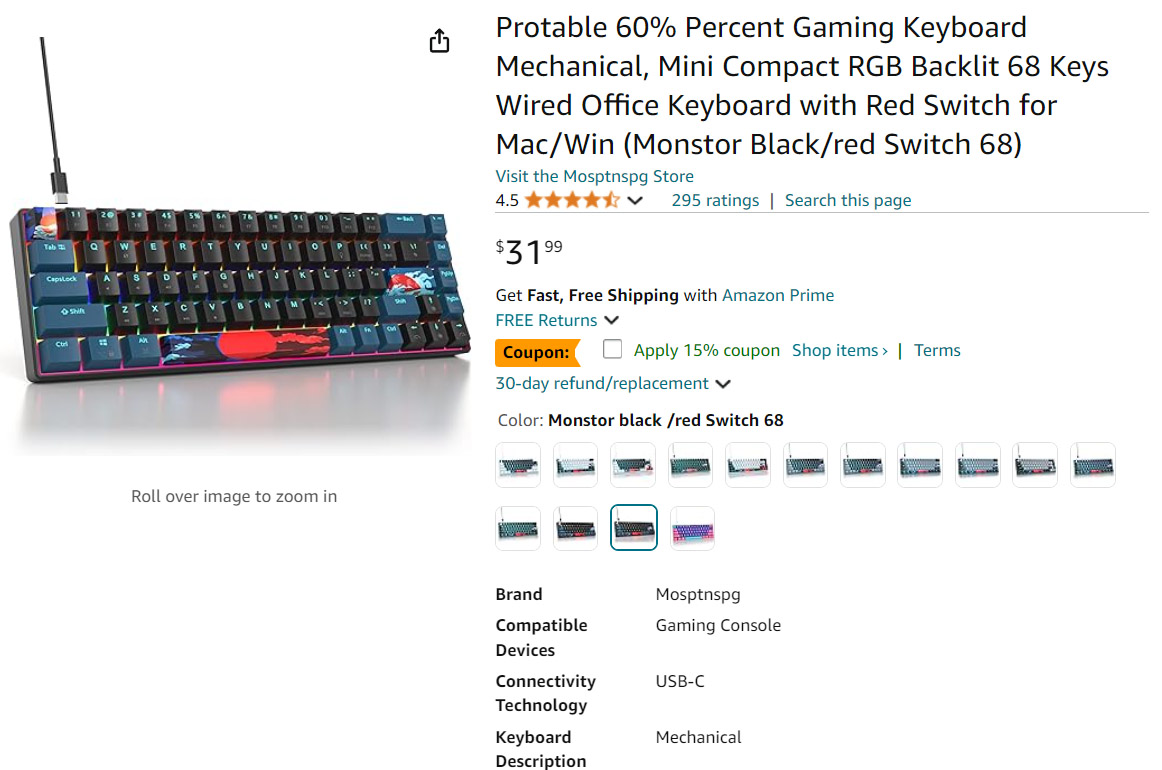

Amazon

Amazon
Amazon
Okay, now we’re venturing into the territory of names that just seem to be randomly generated. “Mosptnspg” looks like a typo you get after your cat walks across your keyboard. Which is appropriate, since this brand sells a bunch of mechanical keyboards with colorful keycaps… thankfully without the brand name anywhere on the case. Oh, and you road warriors will be happy to hear that at least some of them are “Protable.”
Glozili
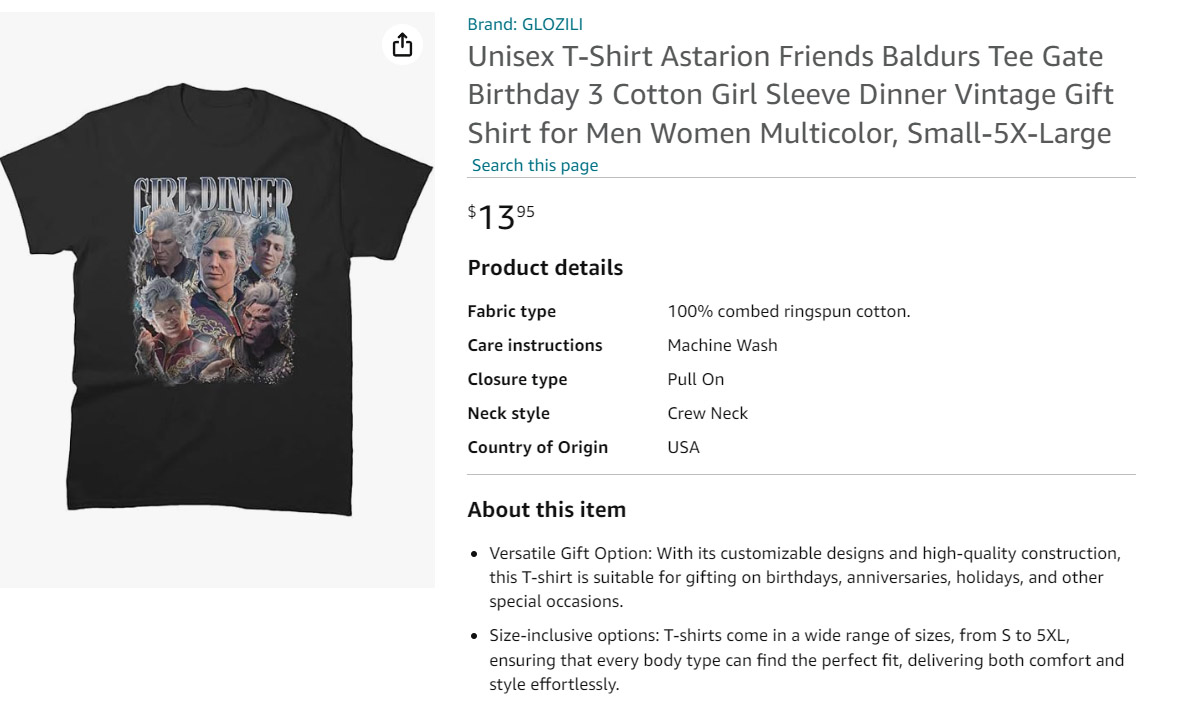

Amazon

Amazon
Amazon
Choose from the available answers: Glozili is a) a Toho-copyrighted monster designed to appeal to children in a Showa-era Godzilla movie, b) an antiquated Latin term for a body part that you can’t recall on your Anatomy & Physiology exam, or c) an Amazon drop shipper of pop culture T-shirts whose official licenses are questionable at best. I like the one featuring Baldur’s Gate III‘s hunky vampire Astarion (five different times) and emblazoned with the legend “Girl Dinner.” Classy.
HTBNFYY
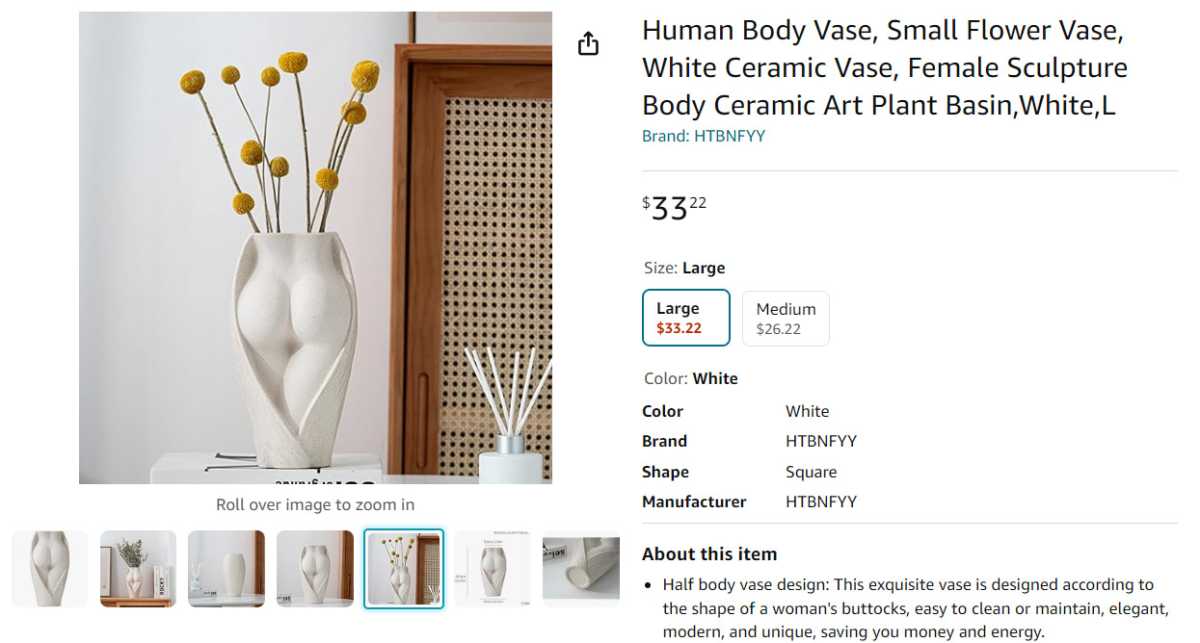

Amazon

Amazon
Amazon
Wow, all consonants and ending in double Y. I’m an uneducated plebian who only speaks English, but that is a tongue-twister for any language that includes vowels. I checked and, no, that’s not an acronym for anything that I can find. HTBNFYY sells luggage, home organization stuff, and a ring holder that looks like a cowboy hat. Oh, and it also sells home decor that includes…this vase that looks like a butt. Okie dokie.
DwanNuts
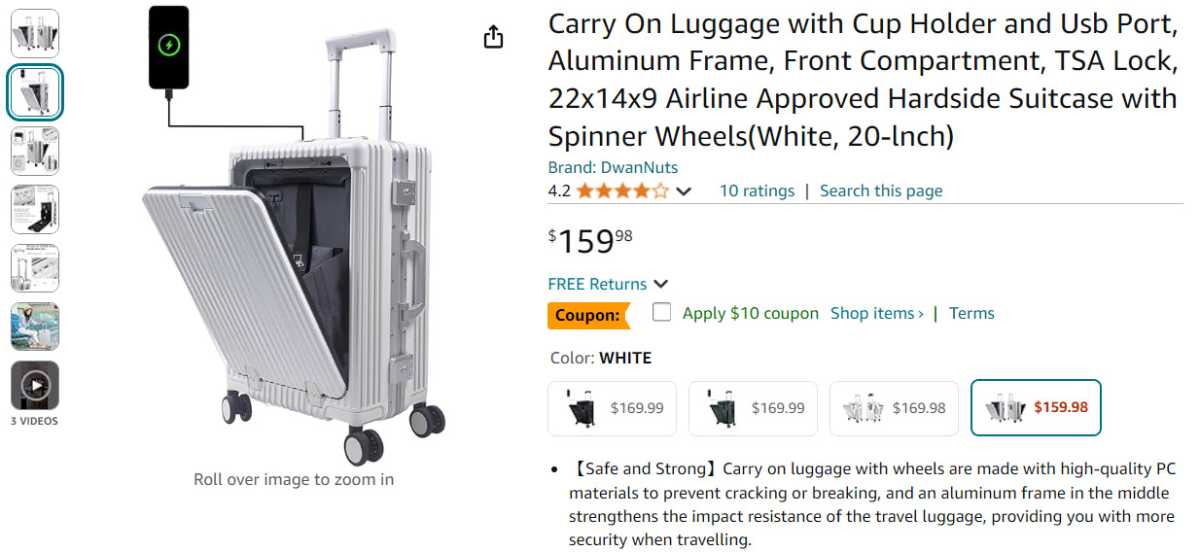

Amazon

Amazon
Amazon
Readers, I apologize. It appears that when I was preparing this list over the last year, I subconsciously put it in ascending order of horniness. That’s the only explanation I can think of for DwanNuts, another brand I spotted while shopping for carry-on luggage. Note that I didn’t camel-case the “Nuts,” that is a decision someone made for themselves.
Though that doesn’t appear to be the brand on the luggage itself, which is inconsistent from image to image and might even be AI-generated. The label in the video is “Linghangzhe,” which is yet another drop-shipping label.
Pornitor
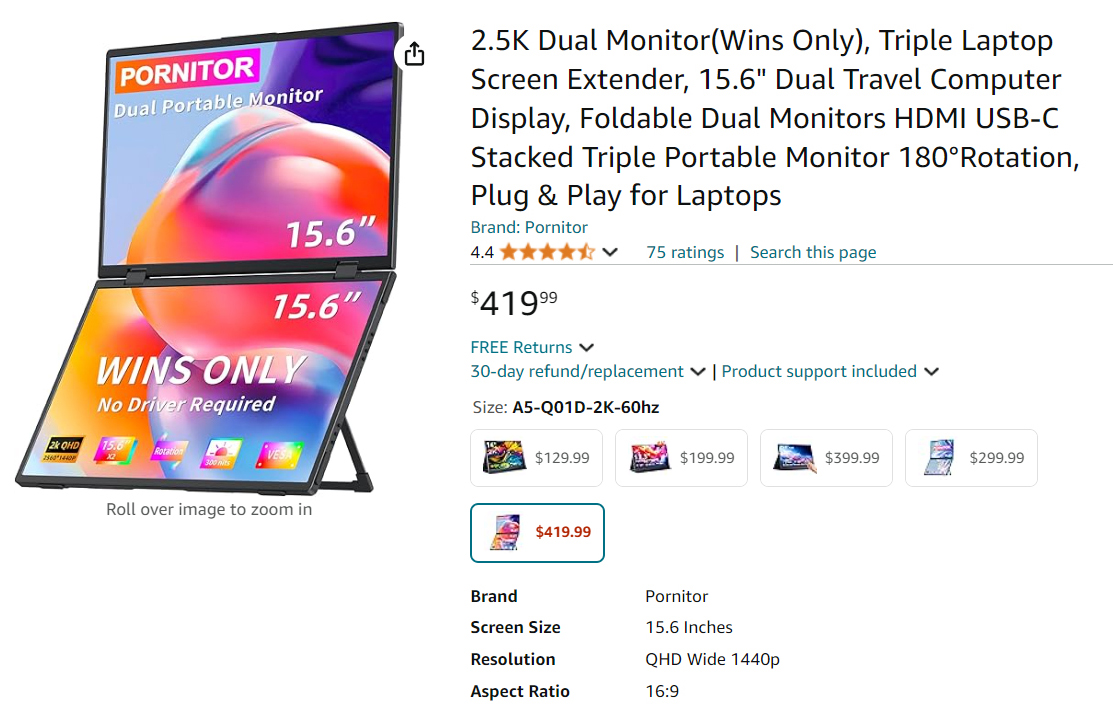

Amazon

Amazon
Amazon
Pornitor is a brand that sells portable monitors. It might be one of the few brands on this list that actually makes sense, but “portable” plus “monitor” equals one of the most regrettable portmanteaus I’ve ever seen. They sell a portable dual-screen monitor, the better to watch two of…whatever it is you’re watching on a Pornitor. I didn’t actually spot this one myself, so shout out to Mastodon user David Bisset for finding it, and for finally breaking my spirit.
I’ll add that as part of preparing this article, I searched for all the above names using multi-lingual dictionary tools and on Wikipedia, just in case someone had chosen a brand name in another language. Because even in an endeavor as frivolous as this one, we don’t wish to belittle anyone’s real language or culture. “Pornitor” is the only one that triggered anything remotely coherent, this time in Romanian.
To the best of my ability to search, “pornitor” means nothing in Romanian. But “porni” is the Romanian verb for “start” or “to start,” and “tor” is a masculine suffix. I’m informed by a Romanian-speaking member of my extended family that “pornitor” could conceivably be translated as “starter,” in the sense of a job or position.
Google Translate seems to have attempted to conjugate the verb, and it translates pornitor as “turn on.” Make of that what you will.
Author: Michael Crider, Staff Writer, PCWorld

Michael is a 10-year veteran of technology journalism, covering everything from Apple to ZTE. On PCWorld he’s the resident keyboard nut, always using a new one for a review and building a new mechanical board or expanding his desktop “battlestation” in his off hours. Michael’s previous bylines include Android Police, Digital Trends, Wired, Lifehacker, and How-To Geek, and he’s covered events like CES and Mobile World Congress live. Michael lives in Pennsylvania where he’s always looking forward to his next kayaking trip.
Recent stories by Michael Crider:
YouTube will shove ads in your face even when you pause videosLinkedIn is training AI with your data. Here’s how to opt out ASAPIndiegogo offers refunds for (some) products that never ship




